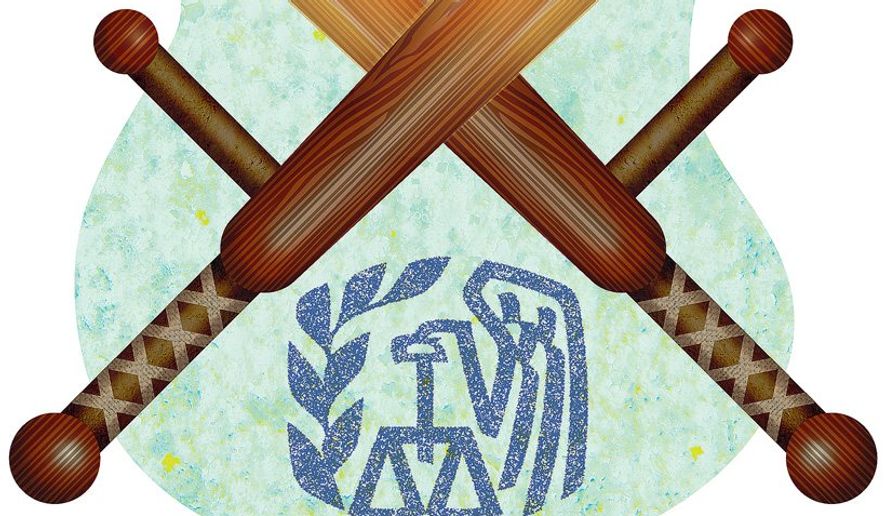OPINION:
Tax Day 2020 preparations are already underway as taxpayers are beginning to receive tax filing documents online and in the mail. The Tax Cuts and Jobs Act of 2017 (TJCA) has both reduced the amount being paid and made filing easier for tens of millions of Americans. It is estimated that about 90 percent of all taxpayers, compared to 70 percent prior to the enactment of the TCJA, will not itemize and instead use the standard deduction for tax years 2019 and 2020.
For those who need help filing their taxes, individuals with adjusted gross income (AGI) of $66,000 or less can use the Free File program, which was established in 2003 in part as a response to the IRS wasting $17 million trying to develop its own tax preparation program called Cyberfile. According to the Free File Alliance, which includes 12 private-sector tax preparation companies that partner with the IRS, 100 million taxpayers, or 70 percent, are eligible to use these free services. While Free File only applies to federal taxes, many states provide the same service for state filings.
Free and easy tax filing with more money in everyone’s pocket after Tax Day is very good news. But some members of Congress, like Sen. Elizabeth Warren, Massuchusetts Democrat, want to turn this into bad news by replacing Free File software with a system developed and run by the IRS. In the surfeit of bad ideas generated by Ms. Warren, this one is especially pernicious.
Rather than using their own information about income and deductions to determine what should be paid on Tax Day, taxpayers would receive a pre-populated tax form to sign and remit payment. The IRS would have accessed the taxpayers’ private tax information and plugged it into a form, made some assumptions about their tax status, and forwarded the form to the taxpayer, from whom they would expect a simple signature and a check (if applicable.) However, if the IRS’s figures and assumptions are inaccurate or information is missing, the taxpayer will have to contact and argue with the IRS. Ms. Warren’s idea would make one of most intrusive and least popular federal agencies the prosecutor, judge, jury, and executioner for everyone’s taxes.
The proposed system will not only be incredibly unfair, it will also be plagued with the same problems that have occurred throughout the federal government’s abysmal history of developing and maintaining software and information technology (IT) systems and protecting taxpayer information. In May 2015, a cyberattack on the IRS exposed 724,000 taxpayer accounts to potential fraud and identify theft. The agency at first said 114,000 taxpayers had their personal information exposed. Three months later, it said 334,000, and 10 months after the incident the IRS adjusted the number to 724,000. Just hours before the April 2018 filing deadline for taxpayers to submit their taxes without a fine, the IRS Direct Pay system crashed. Neither of these incidents is a surprise, as the Government Accountability Office reported that the 60-year-old IRS Individual and Business Master Files are the two oldest databases in the federal government. Efforts to modernize the individual file system are six years behind schedule, with a new completion date of 2022.
In her fiscal 2019 report to Congress, the National Taxpayer Advocate listed confusing audit letters, information technology modernization failures, lack of staffing, poor customer support, refund delays, gaps in safeguarding taxpayers’ private information, and a problematic appeal process among the critical issues the agency is currently facing. Her conclusion is that “we are placing tax administration at risk.”
The federal government should not have any role in tax preparation that would put it in direct competition with competitive private-sector tax preparers that are providing satisfactory levels of service, both personally and online. There is no market failure in the tax preparation sector, and even if there was, that would not mean the federal government should step in.
Tax Day is less stressful than it used to be, thanks to the TJCA and the Free File program. Ms. Warren would like to capsize all of this by allowing the IRS, a poorly performing and understaffed agency with ancient IT systems, to be both the tax preparer and collector. This is a clear conflict of interest and invites rampant abuse, mismanagement and waste. Using taxpayer funds to compete with a thriving private-sector industry would be an extremely costly endeavor, as well as an inappropriate, unnecessary and dangerous expansion of government power.
• Deborah Collier is director of technology and telecommunications policy at Citizens Against Government Waste (CAGW). Leslie Paige is vice president of policy and communications at CAGW.




Please read our comment policy before commenting.